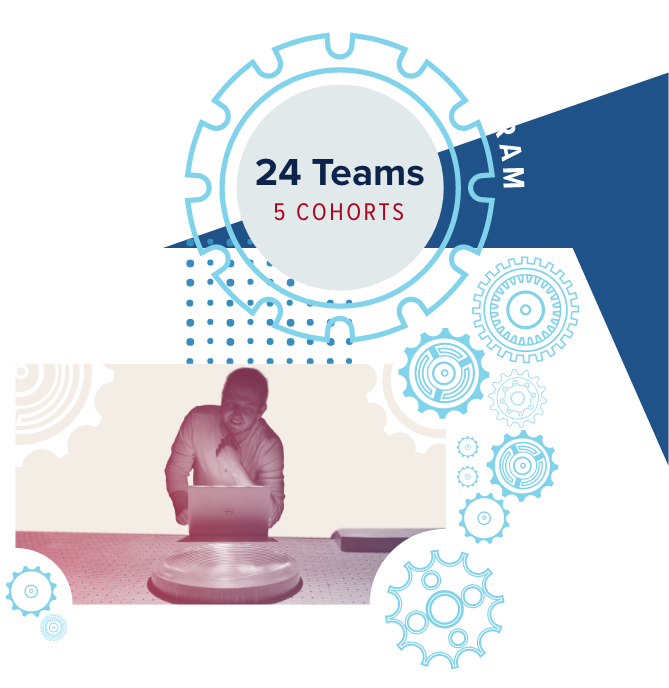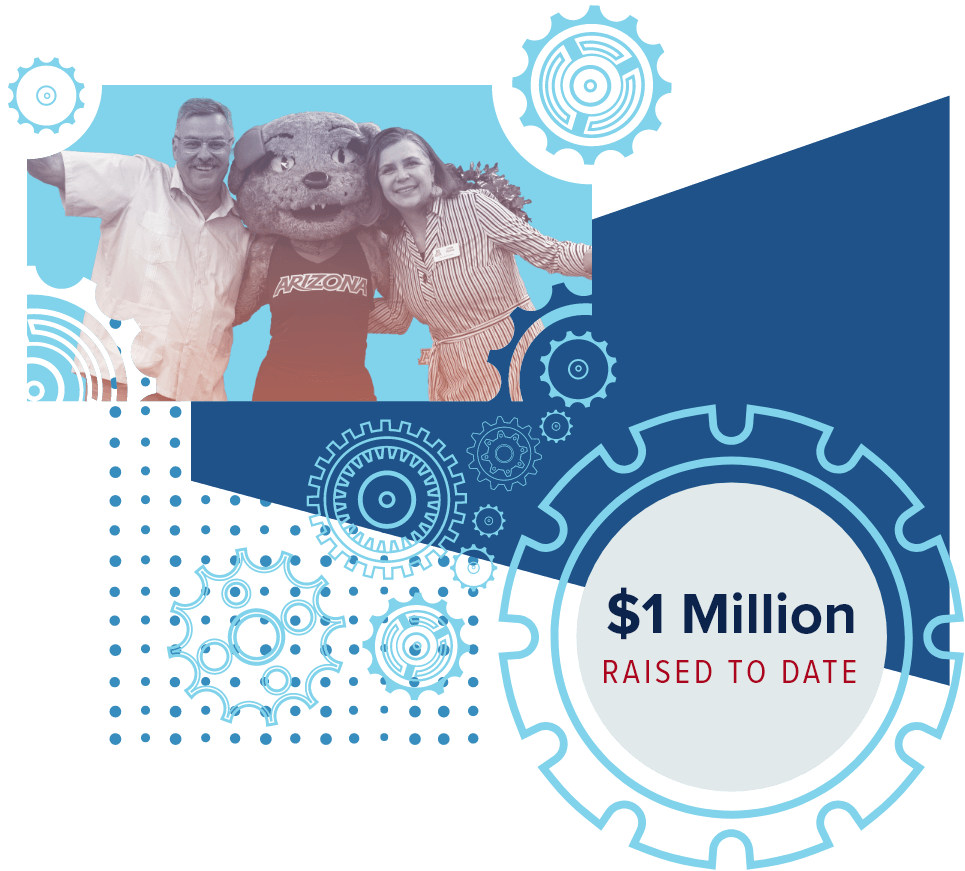
From knowledge and skills to helpful branding programs, FY2023 saw TLA providing tools, programs, and funding to help inventors, entrepreneurs, and students engage and succeed in commercialization.

In recent years, we have been working on developing a partner logo program to allow licensees of UArizona technologies to leverage the brand power of the university. We knew that our startup community was asking for the right to use the university’s block A logo, but there was as yet no official way to allow for that usage. As a public institution, we could not permit private companies to use the university’s brand to promote their products and services.
To solve the issue, we worked with UA Brand Management and Trademarks & Licensing to develop an “Innovation Fueled by Arizona” logo program. Today, with unique branded artwork – and usage governed by a strict set of rules and guidelines – our partner companies can tell their stories bolstered with a logo that highlights the fact that their products are based on Arizona inventions.
Today, the free program is offered to every licensee.

This year, the National Science Foundation Innovation Corps (or “NSF I-Corps”) program shifted its strategy. In previous years, TLA had administered the Site program for the UA, serving local teams through a primarily in-person program. In 2022, the university became part of a new Desert and Pacific Region I-Corps Hub.
In the past year we finished out our Site program with 2 cohorts servicing 8 teams; following on that we had 16 teams participate in the first 3 Hub cohorts.
While the goals of the program remain the same, “to increase economic competitiveness and societal benefit through advancing innovative, university-developed, research-based deep technology venture products and services,” the implementation would now be 100 percent online, with teams participating remotely and simultaneously from all of the regional Hub partner institutions: Arizona State University, Northern Arizona University, the University of California San Diego, the University of Hawaii System, Boise State University, the University of Idaho, and the University of Nevada Las Vegas. San Diego State University will be adding its name to the roster in 2024.

When TLA receives invention disclosures, they are most often very early-stage technologies – so young and undeveloped that they need investment to prepare them for adoption by a potential licensee. Maybe the inventing team needs to develop a prototype or proof-of-concept. Maybe further testing data is needed to prove that the invention can scale. Or maybe a feasibility study is merited.
To address questions like these, TLA has an Asset Development (or “AD”) Fund. Working with our Licensing Managers, UArizona inventors can apply for these funds, the requirements for awards being that they have formally disclosed the invention, the invention is not yet licensed, and the primary inventor is a UArizona employee.
In FY23, TLA funded 13 inventing teams, granting $941,000 in awards for projects ranging from a prostate cancer prognostic to therapeutic nanoparticles to treat renal disease to probes for measuring gasses diffused in soil.

Student engagement remains a top priority for TLA, and we are growing opportunities for students to take part in the process of commercializing UArizona innovations.
Our Market Research Student Analysts and Associates work in close partnership with our Market Research Manager, examining early-stage technologies, and developing research to inform market strategy recommendations to advance those inventions. Through this work, students go beyond the world of the hypothetical, gaining experience working with real-world innovations and helping develop plans to move them forward to impact.
Student Marketing Associates work with the Technology Marketing team to develop plans and materials to promote early-stage inventions directly to industry and work to match technologies with potential licensees, as well as support our social media campaigns.
Our Student Entrepreneurial Fellows, who are generally graduate and Ph.D. students, serve as key members of the Venture Development team and learn about the entrepreneurial experience as they work with real-world startup leadership. They shadow a TLA Mentor-in-Residence – a seasoned entrepreneur – to strategize, develop and launch new ventures. Student Entrepreneurial Fellows also serve as TLA ambassadors on campus and in the community to promote commercialization activities.

This year, an anonymous donor made a $1 million gift to help us launch the Wildcat Seed Fund – a philanthropic, early-stage fund designed to help fund University of Arizona startups launched to commercialize ideas and innovations stemming from the work of university faculty, staff, and students. The fund establishes an evergreen resource to help startups get through the so-called “Valley of Death,” when many new ventures fail due to lack of early-stage financial support.
While the fund will be big enough to start making investments when it reaches $2 million, our initial goal is to grow it to $5 million. At this level, Fund managers will be able to make investments ranging from $50,000 to $250,000.
Students will be essential members of the Philanthropic Wildcat Seed Fund team, helping with the due diligence and investment decision-making essential to the Fund’s success.
The Fund is held by the UA Foundation; as a philanthropic fund, it is fundamentally different from traditional venture capital investment funds. Donors interested in supporting the innovation ecosystem and student experiential opportunities can make gifts through the Foundation, and the Foundation holds any equity resulting from fund investments. Proceeds resulting from successes, such as when startups are acquired or go through an initial public offering, will go back to the Foundation and into the fund for future investments.
Any startup affiliated with the University of Arizona is eligible to solicit investments from the Wildcat Seed Fund.

We respectfully acknowledge the University of Arizona is on the land and territories of Indigenous peoples. Today, Arizona is home to 22 federally recognized tribes, with Tucson being home to the O’odham and the Yaqui. Committed to diversity and inclusion, the University strives to build sustainable relationships with sovereign Native Nations and Indigenous communities through education offerings, partnerships, and community service.
University Information Security and Privacy
© 2023 The Arizona Board of Regents on behalf of The University of Arizona.